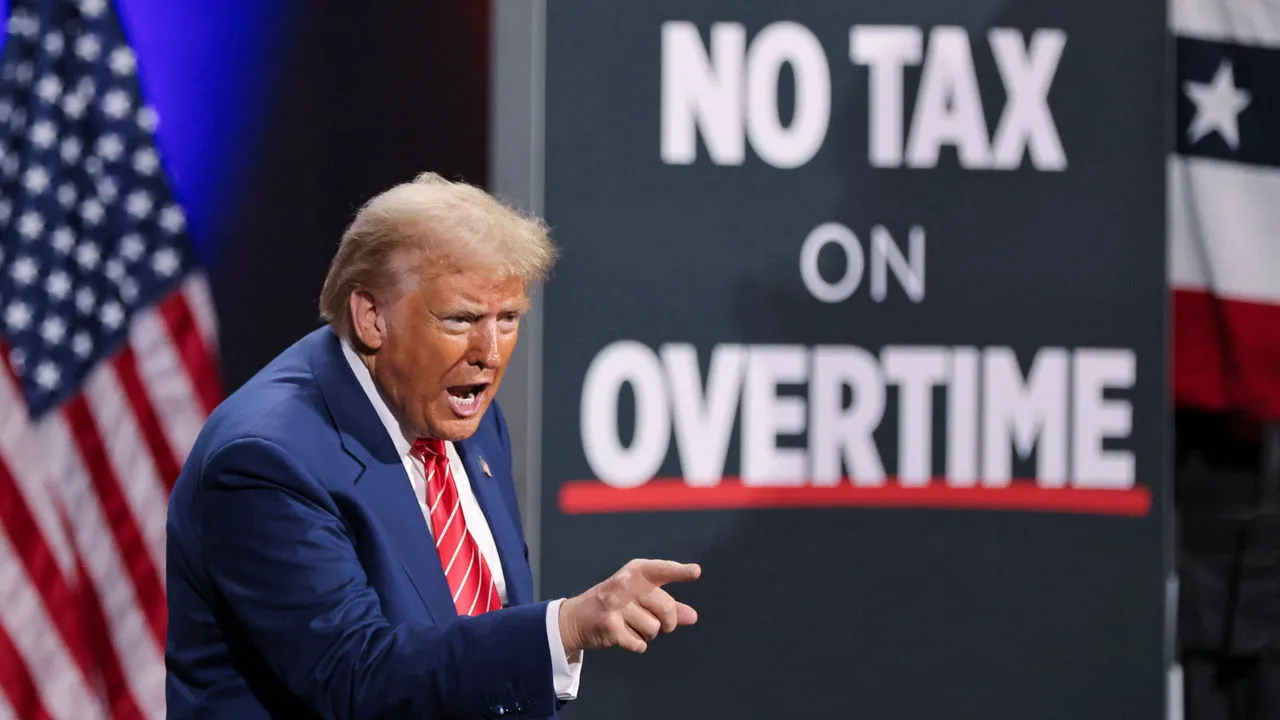President Donald Trump’s new tax bill has not yet been signed, but many parties are worried that he will use financial “weapons” to continue to exert pressure.
As the global financial center and the issuer of the world’s main reserve currency, the US has many tools at its disposal to exert pressure on other countries, from its credit card system to providing USD liquidity to foreign banks.

According to experts, the use of the above tools could backfire and cause significant damage to the US, but these scenarios should not be ruled out.
President Donald Trump announces plans to impose tariffs on imported goods in the Rose Garden at the White House. Photo: Washington Post.
In particular, if the tax policy fails to reduce the US trade deficit with the world – a scenario that many economists consider feasible – the Donald Trump administration may become even more aggressive. China’s response on April 4 caused the US stock market to continue to plummet, deepening the crisis.
“I can absolutely imagine a scenario where Donald Trump will try out some outlandish ideas, even if they don’t have much logical basis,” said Professor Barry Eichengreen from the University of California, Berkeley.
To rebalance the trade balance, one option that was mentioned in a document by Stephen Miran – Donald Trump’s nominee for Chairman of the Council of Economic Advisers – is the “Mar-a-Lago agreement”, which calls on foreign central banks to increase the value of their currencies to weaken the USD.
However, according to Maurice Obstfeld, an expert at the Peterson Institute for International Economics, “that scenario is very unlikely” because the current economic and political situation is far different from the time of the signing of the Plaza Accord in 1985. He also believes that major countries such as Europe, Japan or China will not accept an agreement that requires them to raise interest rates and push the economy into recession.
If no consensus is reached, the Trump administration could turn to more drastic measures such as using the US dollar’s position in the global financial system.
This could include disconnecting foreign central banks from the US Federal Reserve’s (FED) dollar liquidity support network.
Although the FED currently operates independently, Donald Trump’s recent changes in senior personnel still cause concern among observers.
“It is no longer unthinkable that Donald Trump will use this as a serious threat in major negotiations,” warned Spyros Andreopoulos, founder of the consultancy Thin Ice Macroeconomics.
The US could also exert pressure through payment giants like Visa and Mastercard, which handle two-thirds of card transactions in the eurozone. If they were forced to stop their services, Europeans would have to return to cash or complicated bank transfers.
European officials are weighing how to respond but are cautious, fearing an escalation. Responses such as tariffs or restricting US banks’ access to EU markets are difficult to implement given Wall Street’s global clout and the risk of retaliation against European banks operating in the US.







